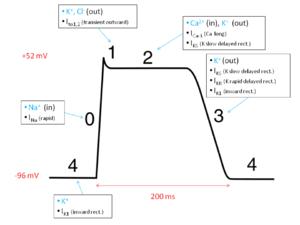This month I’ve been reading a lot of toxicology. While running through the Antidepressant chapter in Rosen’s I realized that I was definitely going to need help remembering the ridiculous number of pharmacological effects of TCAs. Practical? Not so much. A potentially esoteric exam question? Definitely.
This is the first BoringEM “Tiny Tip.” While most of my medical posts are quite long, I think there is some merit to occasionally going over something small and simple. “Tiny Tips” will outline mnemonics and other memory devices that I use as I start studying for my Royal College exams. They will also be summarized on a deck of “Memory Aids” that I will soon make available as part of the AnkiEM project.
Here’s what I came up with:
As outlined in Rosen box 149-1, the major pharmacodynamic effects of TCA’s affect neurotransmitters and ion channels. Acknowledging that 8 effects are not easy to remember, I reclassified them so that they’d fit the easy to recall mnemonic TCA and so that each letter would have 3 actions (I added the effect “Antidepressant” to balance things out). The potential complications of each effect in an overdose are outlined in brackets.
T is for “Thinker”
I know that’s not completely intuitive, but hopefully it’s odd enough for you to remember that it refers to TCAs brain/psychiatric effects. The Thinker effects of TCAs are:
1 – Indirect GABA antagonism (seizures)
2 – Serotonin reuptake inhibition (serotonin syndrome and agitated delirium)
3 – Norepinephrine reuptake inhibition (initial hypertension and agitated delirium)
C is for “Cardiac”
This one is a little more intuitive. The Cardiac effects of TCAs are:
4 – Na channel blockade in phase 0 of cardiac depolarization (wide QRS, impaired inotropy)
5 – K efflux blockade prolonging phase 3 of cardiac repolarization (long QT)
6 – Alpha-1 adrenergic blockade causing vasodilation (hypotension)
A is for “Anti.”
The anti-something effects of TCAs are:
7 – Anticholinergic (delirium, seizures, sedation, coma, prolonged gastric emptying)
8 – Antihistamine (I don’t believe this causes any problems in OD)
9 – Antidepressant (this actually results from the Norepi/Serotonin reuptake inhibition, but it balances out the acronym!)
Hopefully this acronym will help you to remember this somewhat obscure bit of trivia for your exams or at least facilitate some seriously tortuous med student “pimping.”
Stay tuned for more BoringEM Tiny Tips by following on twitter, signing up for e-mails or following the RSS feed. All of the links are in the side column. Thanks for reading!



